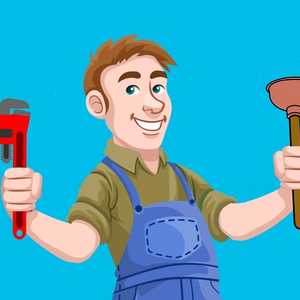Let's talk about mental health in the skilled trades industry
Mental health in the skilled trades industry is one of the topics, which are rarely discussed but should receive a lot more publicity.

Perhaps you would be surprised, if we told you that the skilled trades industry has one of the highest suicide rates amongst employees. This might sound quite contradictory to the 2018 research by Boundless, which found plumbers are the happiest workers in Britain, followed in second place by builders.
How do we make sense of both these facts, so inevitably contradicting?
It's important to remember that 1 in 6
experiences mental health issues, like anxiety, stress and depression. However 1 in 5 fears that disclosing this might cost them their job and reputation.
This is especially true, in a heavily male-dominated industry like the skilled trades. The work environment, and the workplace often lack the processes and options to recognise mental health issues, unless they have been addressed specifically. Yet one of the main characteristics of toxic masculinity, and male-dominated environments is the stigma surrounding
sharing and demonstration of what is perceived as a vulnerability.
Add to this hostile emotional environment the pressure of often being self-employed, and the mix becomes dangerous. Skilled trades workers are often working long days, worrying about maintaining stable income, and often having to deal with all aspects of the business, such as payments, invoices, VAT, complaints and orders. This results in
exhaustingly-long working days, fear of taking a break, as it might affect the income, and burning out. A survey by the boiler manufacturer Glow Worm discovered that on average, heating engineers took just 18 days of holiday per year, compared to the national average of 28.
The official statistics are just a reflection of this. 8.9% of construction workers have a condition, affecting their mood such as depression. Men in the low-skilled construction work were at the greatest risk of suicide, a whole 3.7 times above the national average. In fact, in construction more workers die from suicide, than from falls.
While detecting mental illness can be hard, especially in a taboo environment like the skilled trades, there are signs everyone should be looking for, and able to recognise:
- Increased absence rate.
- Increased alcohol consumption, or drug consumption.
- Family and relationship instability.
- Decreased quality of work.
- Increased irritability.
- Potential health issues.
If you notice employees displaying one or more of these problems, the first step should not be immediate dismissal, which can further aggravate the issue but an offer of counselling and support.
To battle the stigma around mental illness in the skilled trades, and in general, everyone - from the top management, to the new employee should look out for each other, and encourage sharing and an open door policy.
Sources:
- National library of medicine - Construction Workers Struggle with a High Prevalence of Mental Distress and this is Associated with Their Pain and Injuries
- Office for National Statistics - Suicide by occupation, England: 2011 to 2015
- Beyond Blue - Work and Mental Health
- Science Direct - Men, Work, and Mental Health: A Systematic Review of Depression in Male-dominated Industries and Occupations
Related advice
There are plenty of actions you can take to help keep your home in check. Take a look here for the latest guides, advice and tips from our experts!
View our latest advice







